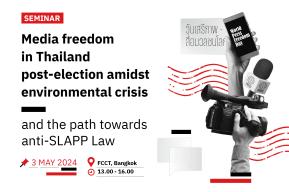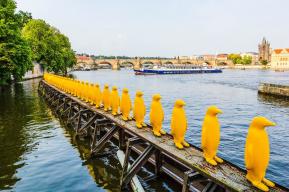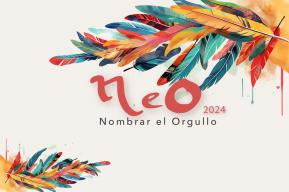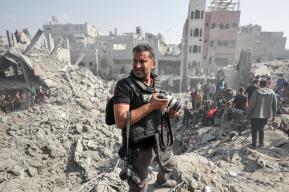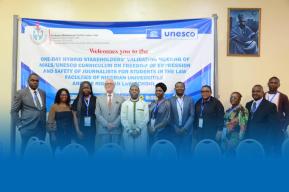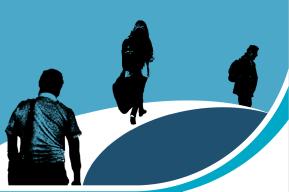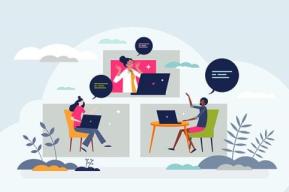News
UNESCO and partners offer new online course on Information and Elections in the Digital Era
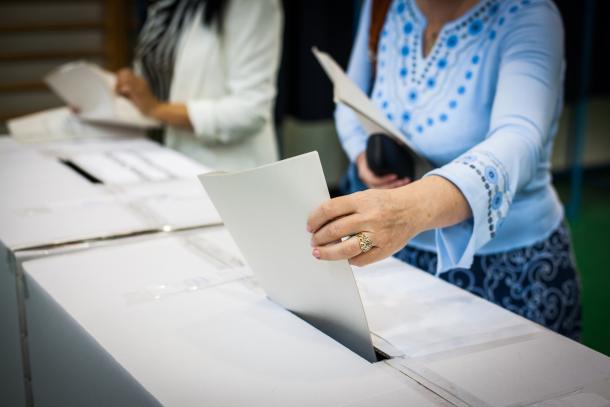
There is a growing interest around the world, together with increasing concern, about democracy in the digital age, with the spread of mis- and disinformation as well as hate speech being determined as one of the contemporary risks to democracies.
Democratic institutions, as well as electoral practitioners, journalists, and non-governmental organizations, are looking for new tools to adapt to technological changes, use them to foster public participation and information, and limit the negative impact of harmful practices such as disinformation and hate speech.
In response to these new challenges, UNESCO, UNDP, and the Knight Center for Journalism in the Americas have developed a free 5-week asynchronous MOOC, that will run from 19 September to 23 October 2022, and will be available in English, French, Portuguese and Spanish.
- The course will help understand and provide insights and experiences on: how the new digital era, including internet, social media, and artificial intelligence affect electoral processes
- identifying options in combat disinformation and hate speech all along the electoral cycle,
- involving key stakeholders to contribute to a transparent and inclusive online ecosystem.
The course aims at providing ideas for responding to these challenges, electoral management bodies, members of the media, regulators, judicial actors, academics, governments, and other electoral stakeholders on these issues.
Information and Elections in the Digital Era
Free global Massive Open Online Course available in English, French, Portuguese and Spanish
To ensure democratic elections, we must guarantee that they can be held fairly and freely, that citizens have access to reliable information throughout the electoral cycle, that electoral violence is avoided whether online or offline, and that any case of electoral violence is prosecuted. Candidates, the press and the voting public must be free to voice their opinions, without intimidation.
This online course is designed to enhance the contribution of a wide range of stakeholders to an information ecosystem conducive to inclusive, transparent and credible elections based on democratic dialogue. We expect it to support electoral stakeholders to harness the new opportunities of digital technologies, while remaining vigilant to the emerging threats, contributing to the legitimacy of electoral processes, and trust in democratic institutions.
The online course will be divided into five modules:
- The new information paradigm and elections,
- Disinformation, misinformation, and hate speech,
- The impact of online harmful practices on the electoral cycle and tools to tackle them,
- Focus on preventive measures to tackle harmful practices,
- Multi-stakeholder engagement and corrective measures to contribute to a transparent and inclusive online ecosystem.
The MOOC will be led by experts in the field of overseeing and implementing elections, fact-checking, human rights, and freedom of expression. It will include high-level speakers such senior electoral commissioners and representatives from authorities, journalists, United Nations experts, and fact-checkers, including: Alphonce Shiundu, Africa Check; Andrew Puddephatt, Internet Watch Foundation; Benoît Loutrel, Regulatory Authority for Audiovisual and Digital Communication (ARCOM); Glen Mashini, Electoral Commission (IEC) of South Africa; Guilherme Canela, UNESCO’s Section on Freedom of Expression and Safety of Journalists; Patricia Campos Mello, journalist; Roselyn Akombe, UNDP Governance and Peacebuilding in Africa; Lorenzo Córdova Vianello and Karla Garduno, National Electoral Institute (INE) Mexico; Vusumuzi Sifile, Panos Institute South Africa; Ghassen Selmi, UNDP Regional Hub for the Arab States as well as UNESCO and UNDP experts.
The MOOC is part of UNESCO’s capacity building efforts to guarantee free, plural, and fair elections in times of disinformation through fostering freedom of expression, including press freedom and public access to information. In this regard, UNESCO has published a series of recent handbooks, guidelines and explainers.
The initiative is supported by the Multi-Donor Programme on Freedom of Expression and Safety of Journalists (MDP).


